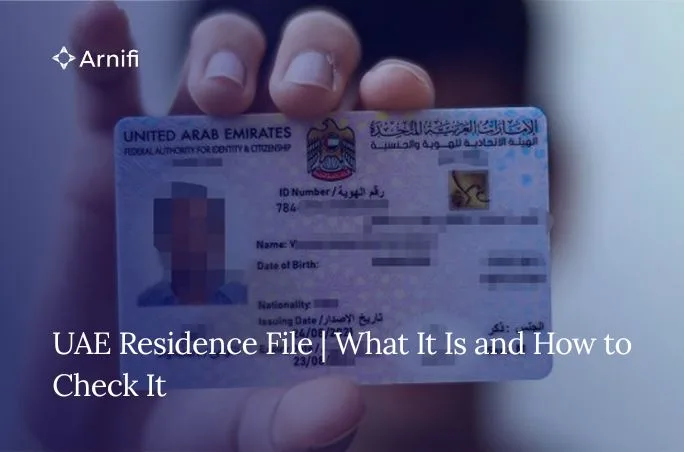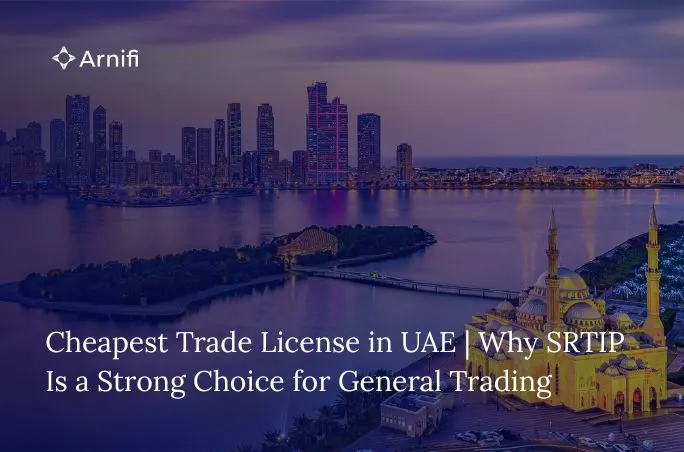Can Free Zone Companies Sell in UAE? – A Comprehensive Guide
by
Shethana
Oct 15, 2024  11 MIN READ
11 MIN READ
Can Free Zone Companies sell in UAE?

Free Zones are special areas in the UAE. They have their own rules and give different advantages to businesses. These zones aim to bring in foreign investment and help the economy grow. Free Zones are important for the UAE’s economy. They give businesses benefits that are not usually found in other parts of the country. This is especially true for ownership, taxes, and customs.
Each Free Zone is designed for certain industries and makes it easier for businesses to set up. They attract companies of various sizes. Every Free Zone has its own authority. This authority issues licenses, manages rules, and offers support to businesses in that zone.
Definition and Purpose of Free Zone Areas
A Free Zone, or Free Trade Zone, is a special area within a country. It has different rules and offers perks for businesses. Dubai is a major business hub with many Free Zones. Each zone focuses on specific industries and aims to attract foreign investment. These areas help boost the economy by providing tax benefits, easy business setup, and a good environment for international trade.
The main goal of a Free Zone is to bring in foreign investment and help the economy grow. They provide great incentives like tax breaks, 100% foreign ownership, and easier customs rules. This helps businesses from all over the world to set up in the Free Zones. This action not only helps the local economy but also promotes trade with other countries.
Free Zones also focus on specific industries. They create groups of similar businesses. This focus encourages new ideas, sharing of knowledge, and the building of useful support services. This is good for companies in those specialized areas. Examples of these industries include media, technology, healthcare, and logistics.
The Legal Framework Governing Free Zones in Dubai
Navigating the Free Zone landscape is not easy. You need to understand the laws that control them. In Dubai, each Free Zone has its own authority. This authority looks after rules, issues licenses, and helps businesses inside its area. Free Zone authorities work independently, but they still follow the broader laws of the UAE and the Department of Economic Development (DED) for some things.
The DED is key in managing business activities in the Dubai mainland. It also supervises how Free Zone companies interact with businesses on the mainland. If a Free Zone company wants to trade or operate in the mainland, it must follow DED rules. Sometimes, it even needs to get licenses or approvals from the DED to do business smoothly.
This system helps balance the unique benefits of Free Zones with the wider laws in Dubai. It makes sure businesses in Free Zones follow both specific Free Zone rules and the overall UAE laws.
Benefits of Establishing a Company in a Free Zone
Setting up a business in a UAE Free Zone has many benefits. This makes it a good choice for companies trying to reach local and global markets. These advantages attract foreign investors and help the UAE’s economy grow. They create a friendly place for businesses to succeed.
You can keep all ownership of your business, send your profits back easily, and enjoy tax breaks on both corporate and personal income. Free Zones also make it easier to start a business, allow different ways to run your operation, and give access to a wide range of skilled workers.
Tax Advantages and Exemptions for Businesses
A major reason why businesses want to set up in Free Zones is the great tax benefits. Companies with a Free Zone license usually do not pay corporate or personal income taxes. This tax break helps them keep more of their profits, which helps them grow and reinvest.
Free Zones also often waive import and export duties. This is very helpful for companies that trade internationally because it lowers their costs and makes them more competitive worldwide. For businesses that deal with finances, Free Zones make it easier to access international bank accounts and manage money transfers smoothly, which supports global business.
It’s important to remember that even though Free Zones have great tax perks, these can change due to government rules. Companies in Free Zones should keep up with any changes to tax laws to stay in line and improve their financial plans.
100% Foreign Ownership and Repatriation of Profits
A key part of the UAE’s Free Zone system is the chance for 100% foreign ownership. This is very different from the usual company rules on the mainland. Now, foreign nationals and businesses can set up and run their companies without needing local sponsors or partners. They have full control over how to run their operations and make decisions.
Along with this 100% foreign ownership, Free Zones also allow businesses to send profits back to their home countries without any limits. This means they can transfer their money freely and aren’t held back by exchange rules. This is a big attraction for foreign investors, giving them more financial freedom and safety.
These benefits together make starting a business in a UAE Free Zone very appealing for international investors. It helps create a strong spirit of entrepreneurship and makes it easy to move money and resources across borders.
Restrictions and Limitations for Free Zone Companies
Operating in a UAE Free Zone is a good choice, but it has some rules and limits. These mainly affect how businesses can connect with the UAE mainland market. It is important for businesses to know these limits so they can plan well and follow the rules.
Free Zone companies usually cannot trade directly with businesses in the UAE mainland. They also have rules about specific business activities. For example, they cannot sell directly or offer services in the mainland without getting the right permissions or forming partnerships.
Direct Sales within the UAE Mainland Challenges
One main rule for Free Zone companies and people wanting to sell in UAE is that they cannot sell directly in the UAE mainland. They can sell their goods and services freely in their Free Zones and to international customers. However, they need to follow specific rules to sell to consumers or businesses on the mainland.
This rule helps protect mainland businesses and aims for fairness in the UAE’s economic system. But it can be hard for Free Zone companies that want to enter the profitable UAE mainland market. To get around this rule, they often look for different ways to access that market.
One way is to partner with local distributors or agents in the UAE mainland. Another option is to set up a branch or subsidiary on the mainland. This allows them to engage directly in business activities there. Each option has its own rules and things to think about. Therefore, Free Zone companies must carefully consider their choices.
Regulatory Compliance and Customs Duties
Free Zones have their own rules, but following UAE laws and customs is very important. Free Zone companies need to follow import and export rules. They must get the right permits for goods going in or out of the Free Zones. It’s also important that their products meet UAE standards and certifications.
If these companies do not follow customs duties and import/export rules, they could face penalties. This could mean fines or legal problems. For businesses engaged in trading, it is essential to handle customs duty carefully. Goods moving between a Free Zone and the mainland may be checked for customs.
Understanding these rules can be complicated and often requires expert help for people wanting to sell in UAE. Businesses in Free Zones should work with legal advisors or specialized consultants. This way, they can follow all UAE laws and customs procedures, reduce risks, and keep their operations running smoothly.
Mechanisms for Free Zone Companies to Operate on the Mainland
Free Zone companies can still expand into the UAE mainland, even with some restrictions. This gives them chances to grow and reach more customers. By knowing how this works, businesses can find new opportunities outside their Free Zones.
One way to grow is by working with local distributors or agents. This helps Free Zone companies connect with existing networks and reach customers on the mainland. Another option is to set up branch offices or subsidiaries there. However, they must follow DED regulations and procedures to do this.
Obtaining a Local Distributor or Agent
For Free Zone companies that want to enter the UAE mainland market, working with a local distributor or agent can be a good choice. By teaming up with a local business that is already established, Free Zone companies can tap into existing distribution systems, helpful market insights, and a built-in customer base.
A logistics partner in the mainland will handle the importing, storage, and delivery of products for the Free Zone company. This option lets Free Zone businesses avoid the issues tied to direct sales, without needing to set up their own mainland business. Still, it’s important to do thorough research to pick a reliable and trustworthy partner.
Carefully checking potential partners, creating clear contracts, and keeping open lines of communication are very important for a successful partnership. Getting legal experts to write detailed contracts protects the interests of both sides and helps prevent disputes related to business activities.
Setting up a Branch or Subsidiary on the Mainland
For Free Zone companies, there is a way to have a more direct presence in the UAE mainland. They can set up a branch office or a subsidiary. A branch office is linked to the parent Free Zone company. It operates under the same name and performs the same business activities. A subsidiary is different; it is a legal entity on its own, created in the mainland.
By opening a branch or a subsidiary, Free Zone companies can have a physical location in the mainland. This gives them more independence and allows them to connect directly with customers. They can join tenders and strengthen their brand presence in the UAE. However, they must follow mainland company rules.
These rules include having a minimum capital amount, getting permission from the DED, and following licensing and visa steps for mainland companies. It can be very helpful to work with business setup consultants who know how to form mainland companies. They can guide you through the process and help you meet all necessary rules.
In conclusion, working with Free Zone companies in the UAE is not simple. If you want to sell in UAE, you need to really understand the legal rules, benefits, and limits. Starting a company in a Free Zone gives you tax benefits and allows full foreign ownership. However, there are challenges like selling directly in the mainland and following rules. To work on the mainland, Free Zone companies can set up a branch or get a local distributor. If you want to grow your business in the UAE, you need to plan wisely and follow the rules. Look into what Free Zones offer while keeping in mind what you need to do to succeed in the wider UAE market.
Frequently Asked Questions
Can a Free Zone Company Directly Sell in UAE and Dubai Mainland?
A Free Zone company cannot sell goods directly in Dubai Mainland. To do that, they must get a separate trade license from the DED. This is needed even if they have a valid license from their respective free zone.
Is It Mandatory for Free Zone Companies to Have a Local Partner to Sell in UAE?
Having a local partner is not always required for Dubai Free Zone companies. However, it is often the best way to sell in Dubai. Whether you need a partner or not depends on what kind of business you have and the type of corporate entity that is doing business in this active business hub of the UAE.
What Are the Steps to Transition from a Free Zone to a Mainland Company?
To change from a free zone establishment to a mainland company, you need to start forming a new company with the DED. This means you must meet certain requirements. You will need to get approvals, find office space, and move your business activities.
Can Free Zone Companies Engage in E-Commerce within the UAE?
Yes, free zone entities in the UAE can do e-commerce. They can use online marketplaces and delivery services to sell products within the UAE. However, there are certain rules about e-commerce activities that they must follow.
Also Read: Ultimate Guide to Free Zone License
Top UAE Packages

Related Articles
Top UAE Packages



